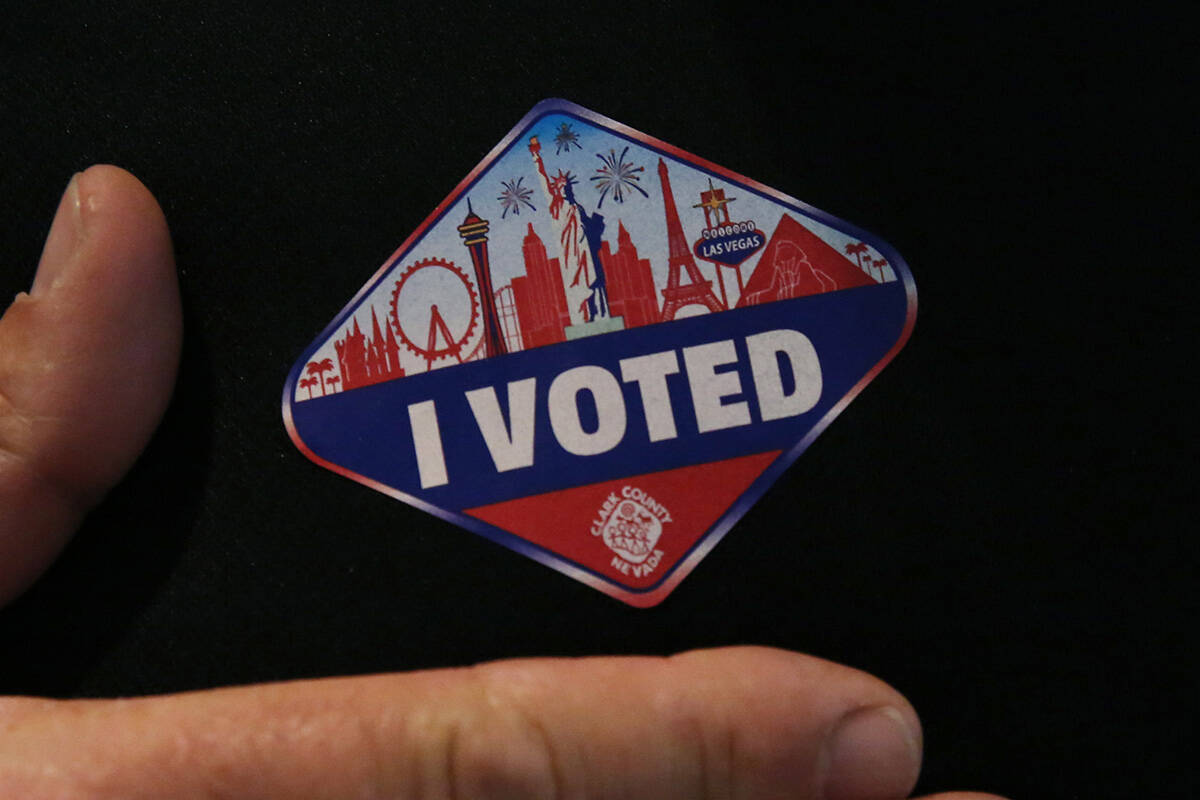VICTOR JOECKS: The many problems with Nevada’s Question 3, ranked choice voting
Election season is chaotic. But don’t worry, it could always be worse. And it will, if voters approve Question 3.
Nevada voters will decide on three statewide ballots measures this November. If you want the short version, vote no on all three. But it’s worth exploring why Question 3, which would create ranked-choice voting, is such a terrible idea. One note: This is a constitutional amendment and would have to win approval both this year and in 2024 to take effect.
Ranked-choice voting would radically change Nevada’s election system. Currently, a 3-year-old could explain how it works. Whoever gets the most votes wins. Simple. Figuring out who won under ranked-choice voting requires a love of Excel spreadsheets. A degree in statistics would help, too.
The changes start during the primary process. Every candidate, regardless of party, runs on the same ballot. The top five vote-getters advance. Supporters made this the selling point of the proposal, but it’s only a small part of it. What comes next is the far-reaching change.
In the general election, voters select their preferred candidate and then rank the others. If a candidate gets more than 50 percent, he or she wins. If no one does, the candidate with the lowest vote total is eliminated. The people who voted for that candidate have their votes redistributed to the candidates they ranked as their second choice. If no candidate obtains a majority, the fourth-place candidate — who may not have been in fourth place originally — is eliminated. Those votes are redistributed. This process continues until someone wins 50 percent.
If a voter’s candidate is eliminated and he or she didn’t select other candidates, that vote essentially disappears.
The theory is that this scheme will allow more moderate candidates to win elections. By ranking candidates, moderate candidates can assemble winning coalitions outside of the extremes of both parties.
There are several problems with this. Philosophically, it tramples on the freedom of association. Parties should be able to select their own nominees. Instead, you could have multiple people from the same party on the general election ballot. If you want to help a party select its nominee, join the party.
Then there are the practical problems. Ranked-choice voting is confusing, which is never a good characteristic for elections. There would be long delays in getting results because you have to know who is in fifth place before redistributing votes. Long delays undermine confidence in the election process, especially if second- and third-place candidates make large gains.
Finally, this plan isn’t going to work in the real world. This week UNR released a poll. The top-line Senate results weren’t believable, but it showed something interesting about down-ballot races. Between 32 and 44 percent of voters don’t know who they’re voting for in the races for attorney general, treasurer and secretary of state. Not great for an election just days away.
Question 3 hinges on voters wading through five candidates. It won’t happen in most races. Ironically, this could help elect more extreme candidates. The way to win down-ballot will be to develop a loyal following and trust randomness to put you over the top as other candidates get eliminated.
No thanks.
Contact him at vjoecks@reviewjournal.com or 702-383-4698. Follow @victorjoecks on Twitter.























